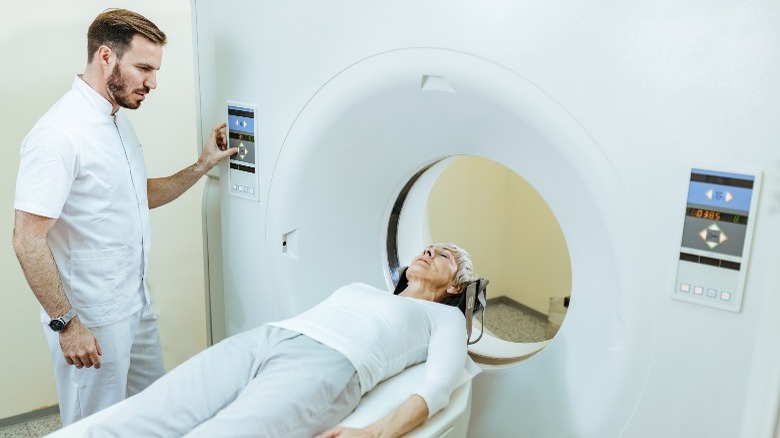If You Have Sudden Confusion, This Could Be Why
If you or someone you know suddenly appears confused, this could be a potentially serious situation.
According to the Cleveland Clinic, this could be a sign of delirium, an unexpected shift in mental status. A person experiencing delirium may seem to suddenly have trouble thinking clearly or appear disoriented. While delirium tends to affect older people, it is not the same as having a "senior moment." It is important to note, however, that while delirium is not a disease or long-term like dementia and Alzheimer's disease, someone can experience delirium at the same time as dementia or Alzheimer's.
There are two types of delirium: hyperactive delirium and hypoactive delirium. If an individual experiences hyperactive delirium, that person will be overactive, agitated, or restless. Someone experiencing hypoactive delirium will appear sleepy and slow to respond. Hypoactive delirium, which is sometimes mistaken for depression, is the more common of the two types, accounting for up to 75% of delirium cases. However, it is not entirely uncommon for someone to experience hyperactive delirium and hypoactive delirium at the same time, seeming alert one moment, and then suddenly becoming drowsy (via Cleveland Clinic).
Delirium: Causes and treatments
There are a variety of circumstances that can trigger delirium. According to WebMD, they range from things that are somewhat within your control — alcohol consumption, low sodium and calcium levels, and being overtired — to medical conditions, such as diabetes, Parkinson's disease, cancer, and dementia. Also, long hospital stays and pain management issues can trigger delirium in some people.
Treatment will vary depending on test results. In addition to conducting an exam and asking questions about symptoms, a doctor may carry out blood tests, as well as use X-rays, MRIs, and CT scans to determine the root cause of the delirium. If a doctor can identify a cause and get it under control, the delirium may subside. However, recovery can vary between a few hours to a few days or longer. A doctor might prescribe medication in the meantime to help a patient stay calm and relaxed as they recover.
As a patient recovers, caregivers should make sure the person eats regularly, drinks enough fluids, gets quality sleep, and encourage the person to move around with help, if it's safe. Preventing delirium will depend on the affected individual. However, having an action plan in place for how to handle the delirium and being familiar with the person's medications is critical. This will also ensure healthcare providers have all the information they need during appointments (via WebMD).


